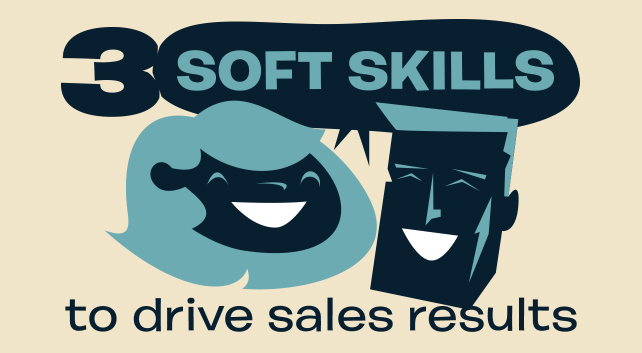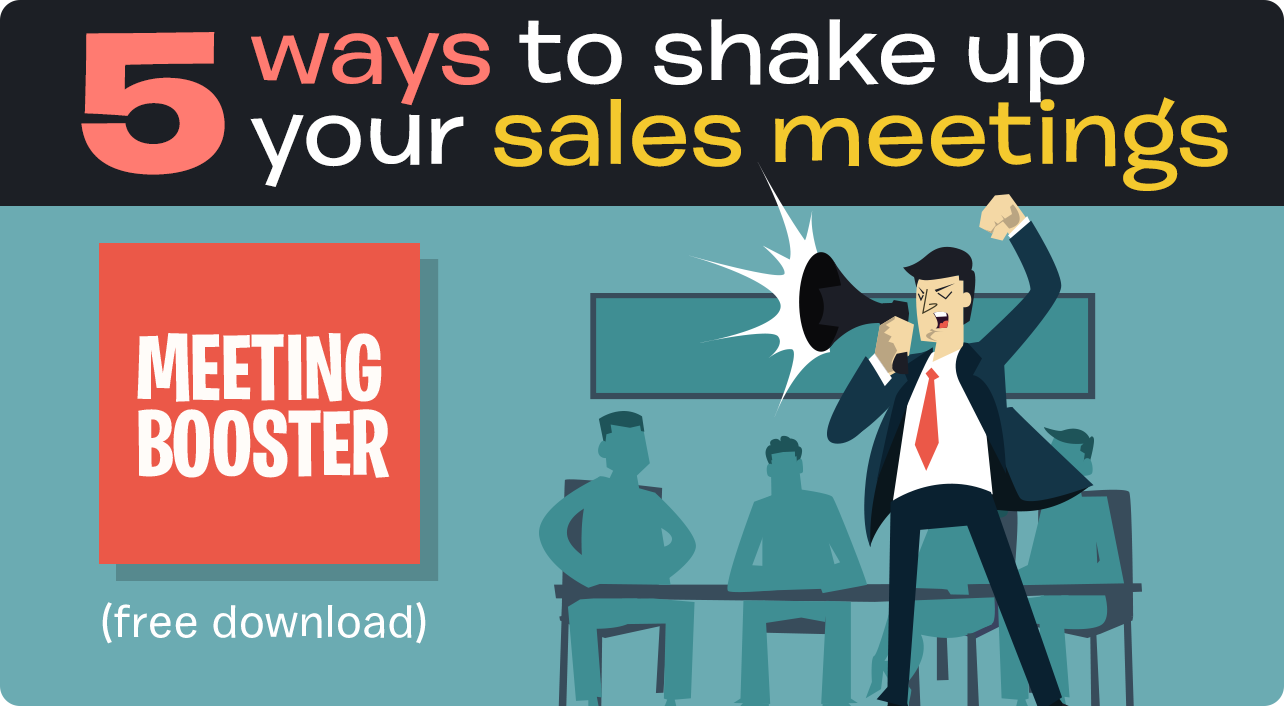- sales
- Blog post
Three ‘soft skills’ that can push sales results through the roof
A growing body of research shows that top performers outdo the rest of us because they’ve mastered “soft skills” — in particular, that collection of interpersonal skills generally known as “emotional intelligence.”
In this context emotional intelligence doesn’t mean getting in touch with your inner child. It’s the ability to understand the emotional landscape of the sale — not only your customer’s state of mind but also your own — and using that knowledge to adjust your approach “on the fly” to achieve the results you seek. This thinking-on-your-feet ability — which sales researchers call “adaptive” selling — turns out to be something that separates so-so salespeople from superstars.
Of course, there’s more to adaptive selling than understanding feelings. You also need a variety of skills and knowledge at your fingertips. But it starts with your ability to read the situation.
A sale gone wrong
I’m reminded of a sales presentation I was once involved with that went terribly, terminally wrong.
One of our team was presenting information that made the prospect seem like he was out of touch with his market. And we were doing it in front of the guy’s boss. Since it wasn’t my turn in the barrel yet, I had an opportunity to watch the prospect’s face during this part of the presentation. And you didn’t have to be an emotional genius to read his feelings. His brow furrowed. His face reddened. He started fidgeting in his seat. Yet my colleague continued on blithely.
Why? There’s no nice, emotionally sensitive way to say this. On the emotional intelligence bell curve, my colleague was not exactly in the 99th percentile. He lacked the bandwidth to pay attention to the prospect’s emotions, so he just pushed on with his slide show. He had no clue how it was playing to his audience.
By the way, we didn’t get the business.
But here’s the thing. My colleague wasn’t a dumb guy. He graduated from a good college. He was knowledgeable and articulate. He held a high-level position in the company. He just couldn’t read people. And perhaps not surprisingly, he didn’t bring in much business.
Here’s some research that helps reinforce the point:
- Data analyzed from a pool of 40 corporations indicated the level of emotional intelligence made the difference between stars and average performers – not expertise or brain power.
- When the U.S. Air Force started choosing recruiters based on emotional intelligence, improved hiring practices saved $3 million per fiscal year.
- People with high emotional intelligence average $29,000 more income per year, say Travis Bradberry and Jean Greaves in their book, Emotional Intelligence 2.0.
Can emotional intelligence be learned?
So what about my colleague? Could he have acquired those all-important emotional intelligence skills?
Probably not. He was getting close to retirement and I don’t think he was interested in changing his approach.
But here’s a statistic that offers hope for the rest of us: Some years ago, American Express launched an Emotional Competence Program for its financial advisors — the folks on the front lines of selling their financial products. For the reps who completed the training, sales increased 18%.
That’s pretty strong evidence that these are skills that can be learned and improved upon–even when you’re dealing with experienced salespeople. In other words, it seems you can teach old dogs some new tricks when it comes to emotional intelligence. As an old dog myself, that’s encouraging news.
So where do you start? Research suggests that there are three foundational “soft skills” every sales professional can work on to improve sales results:
1. Become more self-aware emotionally.
It’s easy to let emotions run wild when faced with a tough-as-nails prospect, for example. The brain can freeze up, turning the meeting into a back-and-forth transaction, rather than one that focuses on value.
It can help to think back over sales calls that went south that way. Were you intimidated? Did you end up more concerned with yourself than the prospect? Next time try to slow down, stay “in the moment” and recognize when your emotions are taking over.
Top performers excel at managing their emotions. After all, it is the ability to manage the dynamics and interpersonal issues that wins the big deals, not product knowledge or expertise.
2. Work on assertiveness.
Salespeople who are not assertive often end up chasing deals, because they are not comfortable asking for agreement on next steps. Or they don’t have the assertiveness to insist on a meeting with all the decision makers.
Top performers know how to be assertive without being pushy, and get good at disqualifying prospects early in the sales cycle.
There’s a big difference between knowing what do to and actually doing it, especially when facing a difficult situation or a prospect that pushes back.
Sales training can take care of the “what,” but it may be worth more in the long run to get some assertiveness training.
3. Give empathy a try.
Former president Clinton was fond of saying, “I feel your pain.” That is the essence of empathy – the ability to see things from the prospect or customer’s perspective.
Empathy calls for being engaged, staying “in the moment,” focused and present.
How often have you been in meetings where people were checking their smartphones or thinking about what they were planning to say next? We all know when someone is not fully engaged – including prospects.
For best results, work on staying “in the moment,” rather than fretting about what just happened (or your reaction to it), or thinking about what will happen next.
It will pay off in terms of sales results.
Source: Colleen Stanley, www.salesleadershipdevelopment.com

Get a demo of all our training features
Connect with an expert for a one-on-one demonstration of how BTS Total Access can help develop your team.



